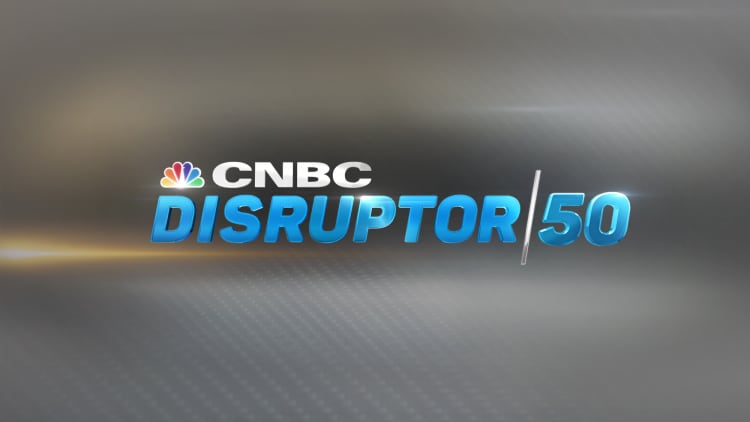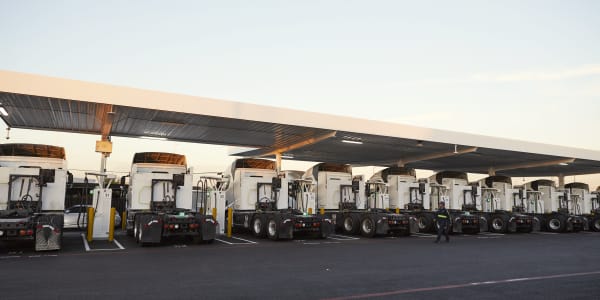It's not easy trying to find the next high flier about to revolutionize an industry and, in the process, disrupt the status quo. Most investors would love to find these hidden jewels that are often privy to venture capitalists and Silicon Valley insiders. That's because these private companies tend to run on rocket fuel. They find a lucrative niche overlooked by corporate titans and exploit it with new products or services that often wow the masses.
CNBC's fifth annual Disruptor 50 list exemplifies the trend. Thirty-one companies are unicorns — with valuations of $1 billion or more — growing at unprecedented rates. The CNBC Disruptor 50 companies have raised nearly $44 billion in venture capital at a combined implied valuation of $239 billion, according to PitchBook. And they represent breakthrough ideas in a wide swath of industries — from biotech and medicine to retail and transportation.

Topping the list is Airbnb, the home-sharing giant that is active in 63,000 cities and 191 countries. In nine years since its founding, the company has raised $4.4 billion in venture capital from such investors as Andreessen Horowitz and Sequoia, pushing its market valuation to $31 billion. It is followed by Lyft (No. 2 Disruptor) and WeWork (No. 3 Disruptor).
More from CNBC Disruptor 50:
Crazy earnings season for past Disruptors
How Lyft is outmaneuvering Uber in the heated ridesharing space Why Warren Buffett is betting on this software start-up
So what methodology is used to to choose which companies make the cut? Companies nominated were scored across a wide range of quantitative metrics, including amount of venture capital raised, off-the-record information on sales and user growth, along with a holistic qualitative assessment by CNBC editorial staff and an advisory council of 39 leading thinkers in the field of innovation and entrepreneurship from such institutions as Babson College, MIT and Stanford.
The quantitative criteria were ranked by their ability to disrupt established industries and public companies. This year the council found that scalability and user growth were the most important criteria, and these categories received the highest weighting.
The quantitative information was supplemented with data from our partners: Pitchbook provided data on funding and valuations; IBIS World analyzed industry disruption; MCAM evaluated companies' ability to protect their proprietary technology.
The result is a diverse list of notables, many of which already have strong global brand names, such as Airbnb, Dropbox, Palantir Technologies, Pinterest, SpaceX, Spotify and Uber — disruptors that have made the list all five years.
While 28 companies on this year's Disruptor 50 list are based in Silicon Valley and 10 are from New York, the rest are headquartered throughout the United States and abroad, in places like Durham, North Carolina; American Fork, Utah; Bangalore, India; and Stockholm. This reflects the growth of entrepreneurial ecosystems emerging in all parts of the world.
Investors in these start-ups run the gamut, but leading the pack are Kleiner Perkins Caufield & Byers, Fidelity Investments, Goldman Sachs, DST Global (the VC firm led by Yuri Milner, the Moscow-based tech entrepreneur) and Andreessen Horowitz.
Not surprisingly, more than a dozen companies on this year's list are IPO candidates. Bloom Energy, the fuel-cell maker, filed with the SEC for a proposed initial public offering last October, and others — including Blue Apron, Spotify, Airbnb and MongoDB — could opt to go public in the months ahead.






